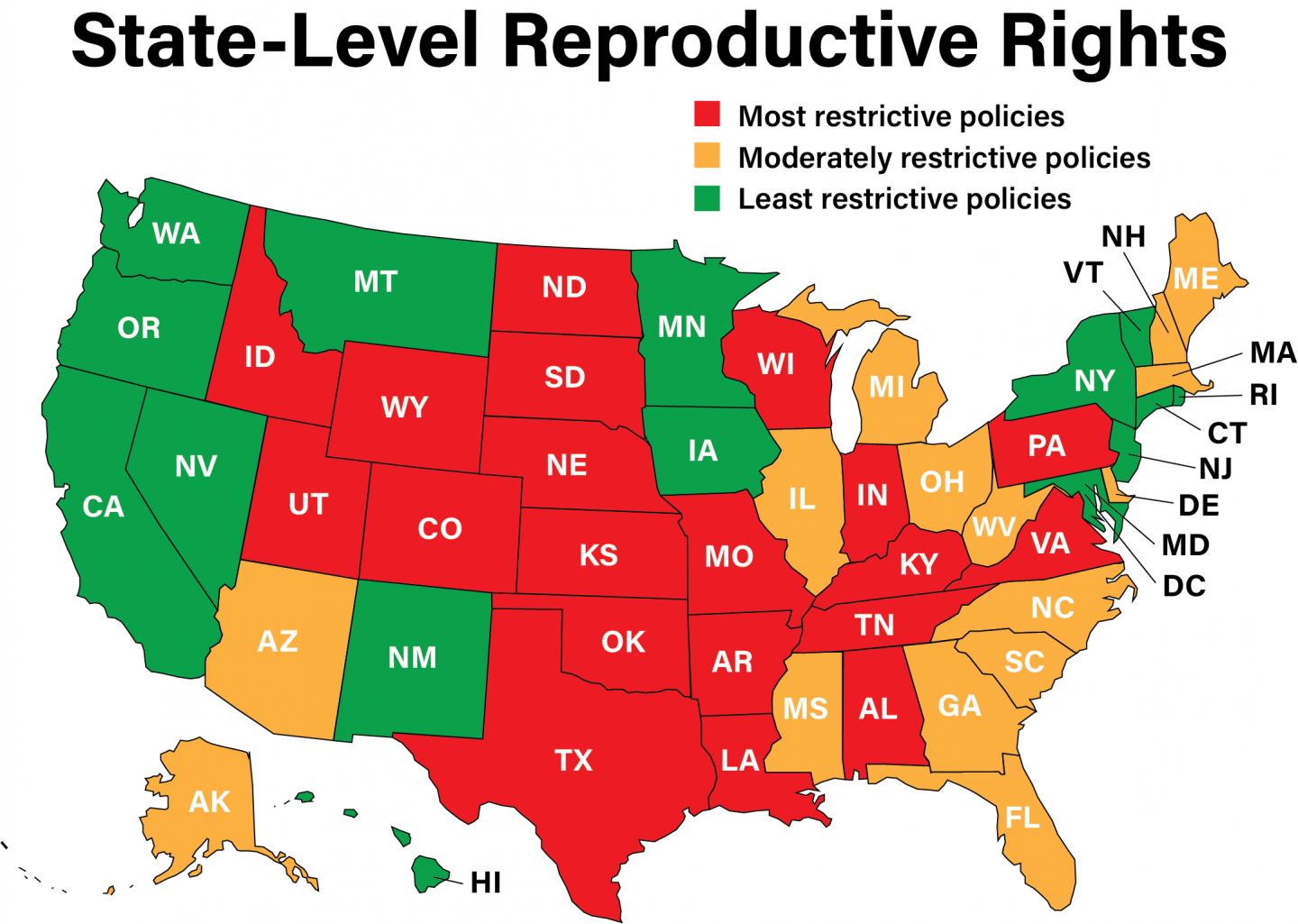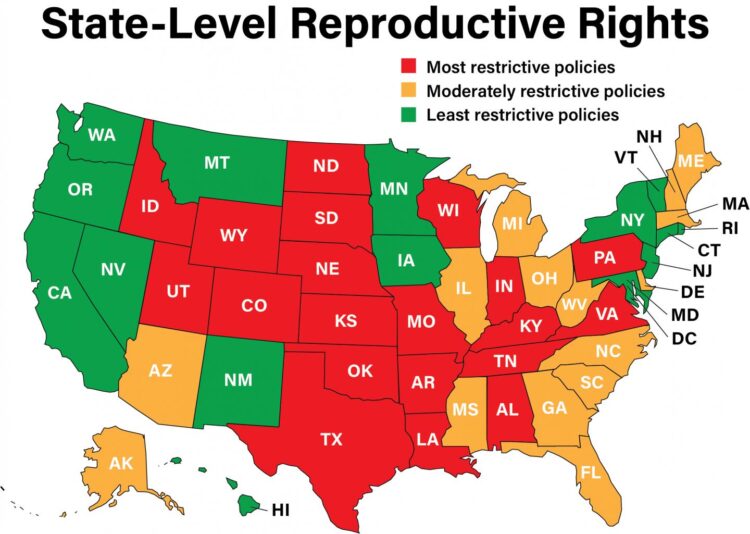Women, particularly US-born Black women, in states with restrictive reproductive rights policies deliver more low birth weight babies and experience greater health inequities, according to the American Journal of Preventive Medicine

Credit: Elsevier
Ann Arbor, October 13, 2020 – American women living in states with less restrictive reproductive rights policies are less likely to give birth to low-birth weight babies, according to a new study in the American Journal of Preventive Medicine, published by Elsevier. The findings show that women, particularly US-born Black women, giving birth in states with less restrictive reproductive rights policies have a seven percent lower low-birth weight risk, compared to women in states with more restrictive policies.
“Our study provides evidence that reproductive rights policies play a critical role in advancing maternal and child health equity,” said lead investigator May Sudhinaraset, PhD, of the Department of Community Health Sciences in the UCLA Fielding School of Public Health, Los Angeles, CA, USA.
Compared to infants of normal weight, low birth weight babies may be more at risk for many health problems. Some infants may become sick in the first six days of life or develop infections. Others may even suffer from long-term problems, including delayed motor and social development or learning disabilities.
This research contributes to understanding how broader social policies affect birth outcomes measured by examining race and nativity status. The events of 2020 sharpened national focus on structural racism, which historically and culturally reinforces racial inequities through discriminatory practices and unequal distribution of resources, such as wealth, healthcare, and housing. This dynamic may be an important factor in producing reproductive disadvantages via stress-induced physiological pathways that are exacerbated by racism and tied to poor health outcomes.
The study analyzed birth record data for the nearly four million births that occurred in the 50 states and the District of Columbia in 2016 to assess the associations between reproductive rights policies and adverse birth outcomes. The investigators further evaluated if the associations were different for women of color and immigrants. Compared with women living in states with the most restrictive reproductive rights policies, women living in the least restrictive states had a 7 percent lower low-birth weight risk. Low-birth weight risk was 8 percent lower among Black women living in states with the least restrictive reproductive rights policies compared with their counterparts living in the most restrictive states.
The study indicates that expanding reproductive rights may decrease the risk of low-birth weight, particularly for US-born Black women. Specifically, the findings showed significant associations between low-birth weight and states’ reproductive rights climate among US-born, but not foreign-born, Black women. This finding is in line with the growing literature on the context-dependent nature of race as a determinant of population health. It may be that US-born Black women’s reproductive health is affected by the cumulative impact of lifetimes and generations within a systematically racist society.
The national reckoning on racial injustice and the Black Lives Matter movement underscore the critical importance and urgency of addressing longstanding systemic racism and its adverse effects on the health and well-being of black, Indigenous and people of color (BIPOC) women and families, in particular. Black women are more likely to die in pregnancy and childbirth than any other race group, experience more maternal health complications than White women, and experience lower quality maternity care, including disrespectful care during childbirth. Moreover, adverse birth outcomes constitute a major public health priority; yet significant inequities exist across race and nativity status.
Dr. Sudhinaraset concluded, “Addressing the adverse consequences of structural racism requires examination of the historical and present-day policies that negatively affect women of color. Future studies should assess specific evidence-based policies, particularly highlighting women’s lived experiences of policy exclusion or inclusion, and the effects on women and newborn health. Important policy levers can and should be implemented to improve women’s reproductive health overall, including increasing abortion access and mandatory sex education in schools.”
###
Media Contact
Jillian B. Morgan
[email protected]
Related Journal Article
http://dx.





